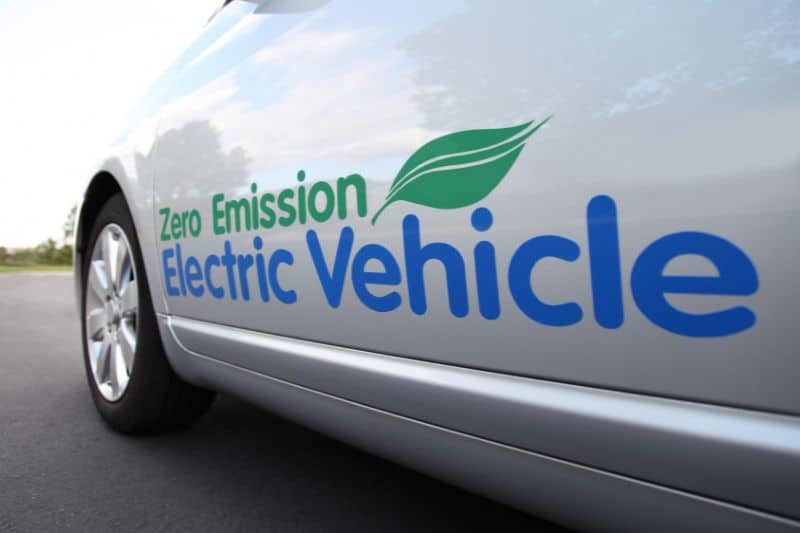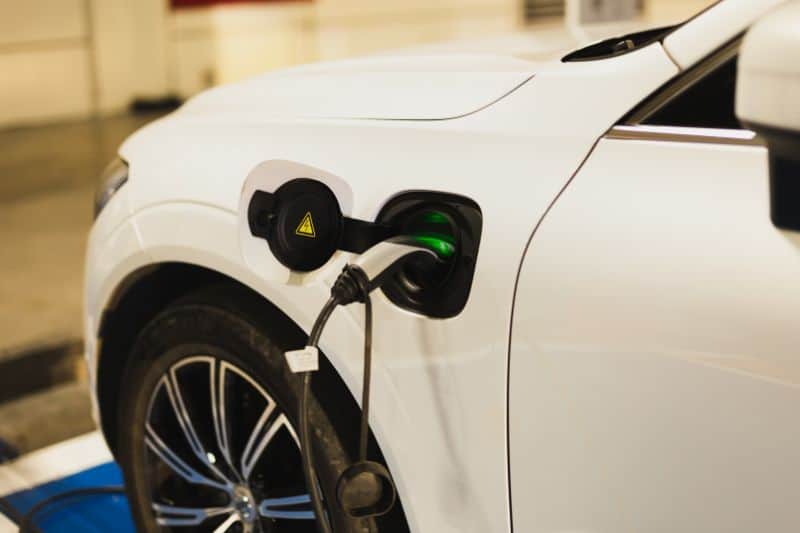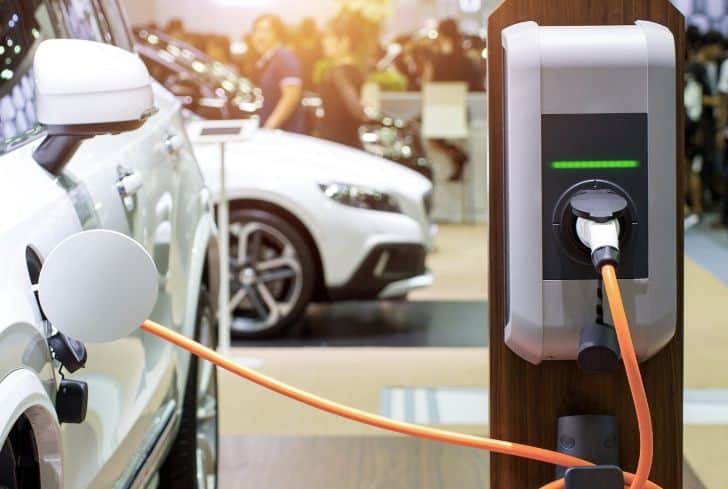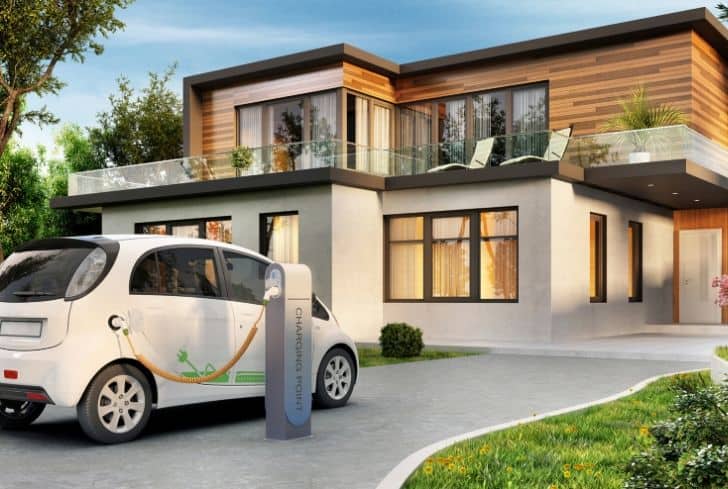The electric vehicle (EV) is a relatively new concept in the world of the automotive industry. Although some companies have based their entire model of cars around being proactive and using electricity, some also offer hybrid vehicles that can run on both electricity and gas.
An electric car such as Nissan Leaf, Ford Focus Electric, Tesla Model S, or Chevrolet Volt is a great way to save money and help contribute towards a healthy and stable environment.
Cars produce a lot of carbon emissions that are ejected into our natural atmosphere, leaving us vulnerable to things like pollution and greenhouse gases. To positively help our environment, an electric car is, therefore, a great step forward.
You see, instead of using fossil fuels, EVs get their power from rechargeable batteries installed inside the car. These batteries work much similarly to those found in regular gasoline cars, only that with EVs, the batteries are used for the overall functioning of the car and not just starting the engine.
That means a switch to EVs is one thing we should consider doing if we want to cut down on the amount of fuel we burn into the environment when commuting from one place to another.
And in fact, some governments are already showing their commitment to promoting the shift by giving EV buyers subsidies for being environmentally conscious.
In this article, we will examine the advantages and disadvantages of electric cars. We’ll try as much as possible to cover every detail worth knowing about EVs, so let’s jump right in!
Advantages of an Electric Car
An electric car can be a great way for you, as a consumer, to save a lot of money on gas. However, there are many different reasons why you should invest in an electric car.
1. No Gas Required
Electric cars are entirely charged by electricity, meaning you never need to buy any gas again. That’s good news, especially considering that fuel prices have always been on the rise.
The average American pays about 15 cents a mile to drive a gas-powered vehicle, whereas many electric cars run on 5 cents a mile. That means operating electric vehicles is a third of the cost of running their gasoline counterparts.
Even more impressive with EVs, there’s room for further reducing that price. For instance, people can opt to charge their cars in the garage by installing a few solar panels.
2. More Convenient
The electric vehicle is easy to recharge, and the best part is you will no longer need to run to the fuel station to recharge your car before hitting the road! Even a normal household socket could be used for charging an electric car.
3. Savings
These cars can be fuelled for very low prices, and many new cars will offer great incentives to get money back from the government for going green. Electric cars can also be a great way to save money in your own life. With a shift to EVs, you can avoid the $2000 – $5000 that an average household incurs on gas each year.
4. No Emissions
The biggest advantage of an electric vehicle is its green credential. Electric cars are 100 percent eco-friendly as they run on electrically powered engines.

These autos don’t emit toxic gases or smoke into the environment since they run on a clean energy source. They are even better than hybrid cars as hybrids running on gas produce emissions. Hence, by investing in a purely EV car, you’ll be contributing to a healthy and green climate.
5. Popularity
EVs are growing in popularity, and one of the reasons for the hype is that they are nearly three times more efficient than cars using an internal combustion engine, according to Wikipedia.
With popularity comes all sorts of good things; better efficiency, a wealth of choices, and so much more. In other words, the EV market can only get better.
6. Safe to Drive
Electric cars undergo the same fitness and testing procedures as fuel-powered cars. An electric car is safer to use, given its lower center of gravity, which makes them much more stable on the road in case of a collision.
In case an accident occurs, one can expect airbags to open up and the electricity supply to cut from the battery. This can prevent the people aboard from serious injuries. Plus, EVs are much less likely to explode due to the absence of any combustible fuel or gas.
7. Cost-Effective
Earlier, owning an electric car would cost a bomb. But with more technological advancements, both cost and maintenance have gone down.
The mass production of batteries and available tax incentives further brought down the cost, thus, making it much more cost-effective.
Consult a tax specialist to learn more about any tax credits that might be available to you on the state or federal level.
8. Low Maintenance
Electric cars run on electrically powered engines. That means there is no need to lubricate the engines, or perform any maintenance task necessary for the regular combustion engines.
That’s good news, especially considering some engine maintenance services can be very expensive.
Plus, you don’t need to send it to the service station as often and probably wait for hours or even days as you do for a standard gasoline-powered car.
9. Reduced Noise Pollution
Electric cars put a curb on noise pollution as they are much quieter.

Plus, the electric motors provide a much smoother drive with higher acceleration over longer distances.
10. Battery Life & Cost
Batteries are an integral part of an electric vehicle. Most electric vehicle batteries are lithium ones, and their costs are improving every year.
The full capacity of a lithium-ion battery cell should be good for 300 to 500 cycles, and a good battery could last you up to 10 years. And while they may be a bit expensive, the improving technologies hold the promise of reducing the cost.
11. Easy Driving
In the world of automobiles, electric cars have the simplest driving method. Commercial electric cars come with a transmission comprising only one really long gear and don’t suffer from the stalling problem like gasoline cars.
This effectively eliminates the need to add a clutch mechanism to prevent that from happening. That’s to say, you can operate an electric car with just the accelerator pedal, brake pedal and steering wheel.
Another really useful feature is regenerative braking. In normal cars, the braking process is a total waste of kinetic energy released as frictional heat. However, the same energy is used to charge the batteries in an electric vehicle.
Disadvantages of an Electric Car
Although the evidence of the positives has become very clear, there are also some downsides that each individual needs to consider before they decide to make an electric car their next big investment.
These reasons are:
1. Recharge Points
Electric fuelling stations are still in the development stages. Not a lot of places you go to daily will have electric fuelling stations for your vehicle, meaning that if you’re on a long trip or decide to visit family in a rural or suburban area and run out of charge, it may be harder to find a charging station. You may be stuck where you are.
However, until charging stations are more widespread, be sure to have charging station maps of where you live and where you frequently go so that you’ll be able to charge your new EV when you need to.
2. The Initial Investment is Steep
As EVs are very new, you may be surprised when you look at the sticker price for EVs. Even the more affordable brands can be around $30,000 to $40,000, while the sumptuous options may require you to fork out an astounding $80,000 or even more!
However, the good news is that technology is advancing, and the price of producing electric cars continues to drop. But then, we still can’t ignore that you have to pay $10,000 to $50,000 more for an EV than for a gas-powered car.
3. Electricity Isn’t Free
Electric cars can also be a hassle on your energy bill if you’re not considering the options carefully. If you haven’t researched the electric car you want to purchase, you may be making an unwise investment.
Sometimes electric cars require a huge charge to function properly – which may reflect poorly on your electricity bill each month.
4. Short Driving Range and Speed
Electric cars are limited by range and speed. Most of these cars have a range of about 50-100 miles and need to be recharged again. You just can’t use them for long journeys as of now, although it is expected to improve in the future.
5. Longer Recharge Time
While it takes a few minutes to fuel your gasoline-powered car, an electric car takes about 4-6 hours and sometimes even a day to fully charge, especially if you don’t have a dedicated power station.

As such, ensure that you have access to a dedicated power station to cut down on the time you have to wait for your EV to recharge. Otherwise, waiting hours for the car to recharge after every tens or hundreds of miles covered can be very inconvenient.
6. Silence as a Disadvantage
While silence is a key factor for those who cherish serenity, it can also be a disadvantage, especially to other road users.
You see, some people, on top of using the side mirror, like to hear the noise of an approaching car, especially if the car is coming from behind.
But electric cars do not produce this noise, meaning other road users have to rely more on their eyes than ears for safety on the road.
7. Normally 2 Seaters
Most of the electric cars available today are small and 2 seated only. They are not meant for the entire family, and a third person can make a journey for the other two passengers a bit uncomfortable.
8. Battery Replacement
Depending on the type and usage of battery, batteries of almost all electric cars need to be changed every 3-10 years. That’s a huge cost awaiting you in the future, but we hope that technology will play its part in bringing the cost down.
9. Not Suitable for Cities Facing Power Shortage
As electric cars need the power to charge up, the cities already facing acute power shortages are unsuitable for electric cars. The consumption of more power would hamper their daily power needs.
10. Lower Amount of Choices
The market today for electric cars is expanding, with no signs of slowing down. However, the truth is that there are fewer options to customize and choose the aesthetics of your EV.
At the same time, a vast amount of customization is available with traditional cars. This is likely to change over time, but it will be a disadvantage for many people.
11. Minimal Amount of Pollution
Electric vehicles are also not 100% emission-free; they cause a small amount of pollution indirectly. The batteries and electricity needed for charging are not necessarily generated from renewable energy sources.
12. Some Governments Do Not Provide Money Saving Initiatives to Encourage You to Buy an Electric Car
While some governments have taken the initiative to promote a switch to EVs by providing subsidies, not every government has bought this idea. This means these vehicles’ high initial acquisition cost is more severely felt in some areas than others.
And that’s it! As you can see, numerous factors should be considered before buying an EV.







